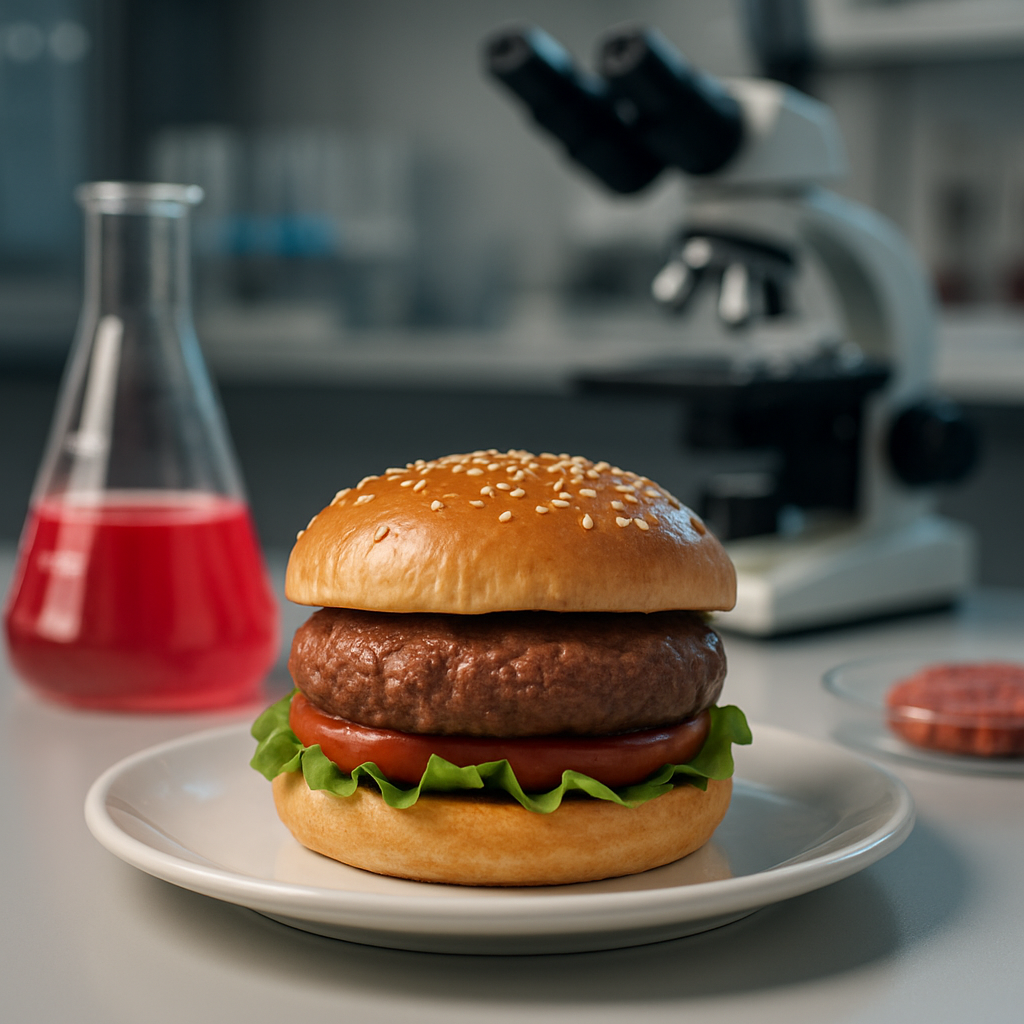Would You Eat a Lab-Grown Burger?

When Dutch scientists unveiled the world’s first lab-grown burger in 2013, reactions ranged from excitement to skepticism. The idea of eating meat grown in a laboratory rather than raised on a farm sounded like science fiction. But over a decade later, lab-grown, or cultivated meat, is edging closer to supermarket shelves. The question now is not just whether it’s possible—but whether people are willing to eat it.
Supporters of lab-grown meat point to its potential environmental benefits. Unlike traditional livestock farming, cultivated meat doesn’t require vast amounts of land, water, or feed. According to some studies, it could reduce greenhouse gas emissions by up to 90%. Animal welfare advocates also praise the technology for eliminating the need to slaughter animals, arguing it offers an ethical solution to feeding a growing population.
But not everyone is convinced. Critics raise concerns about the energy required to produce lab meat at scale, which may offset some of its environmental gains. Others question whether it’s truly a healthy or natural alternative. After all, the process involves extracting cells from an animal and growing them in a bioreactor using a mixture of nutrients and growth factors—something that, to many, still sounds unappetizing.
There’s also the issue of trust. Some people worry about transparency and regulation, especially when big tech companies are involved. As with genetically modified foods, public acceptance may hinge more on emotion than data. Cultural attitudes toward food are deeply rooted, and it’s unclear how consumers will respond once lab-grown options become widely available.
To navigate this complexity, some experts advocate for a cautious but open-minded approach. They argue that lab-grown meat is not a silver bullet, but part of a larger shift toward more sustainable food systems. It could complement other trends, such as plant-based diets and regenerative agriculture.
In the end, the question isn’t only about science or technology—it’s about values. Are we willing to change the way we think about food in order to protect the planet? And if so, can a lab-grown burger ever satisfy more than just our hunger?
While Reading Tasks
- Underline any reasons given for or against lab-grown meat.
- Highlight words or expressions related to innovation or ethics (e.g. “cultivated meat,” “animal welfare,” “transparency,” “sustainable food systems”).
Post-Reading Comprehension Questions
- What are the main benefits of lab-grown meat according to the article?
- What are some ethical or environmental concerns mentioned?
- How does the article use cautious language to present multiple views?
- Would the author likely support eating lab-grown meat? Why or why not?
